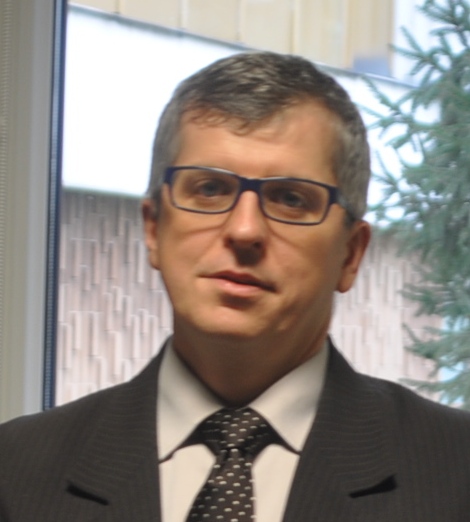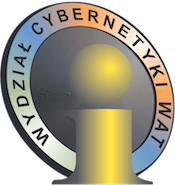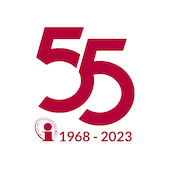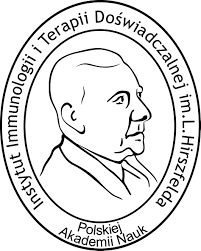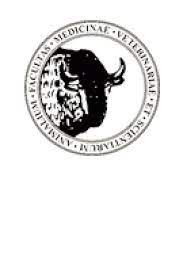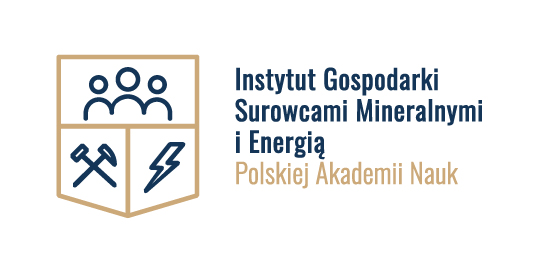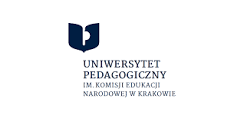Sciencetobusiness.eu: Professor, could you tell us what the Department looks like today?
Prof. dr hab. med. Piotr Rutkowski, Head of the Clinic: It is, first of all, a Department which operates in a model manner. In its diagnostic, treatment, and scientific activities (including clinic research), the Clinic team focuses on three groups of patients: those with soft-tissue sarcomas, bone sarcomas, and cutaneous melanomas. The asset of our Clinic is a multi-specialist team, composed of nine clinical oncologists, eight surgical oncologists, and two radiation oncologist working with four research nurses, as well as a rehabilitation (physiotherapy) specialist and an immunotherapy coordinator. We also have two radiologists and three pathomorphology specialists dedicated to sarcoma/melanoma diagnostics and cooperating with us as well as a molecular biologist.
At present, such complicated tumours as sarcomas may only be treated with a cooperation of all specialists. Each year, we treat over 550 new skin melanomas and over 300 new sarcomas; therefore, in case of sarcomas we cover app. one third of Polish population. We could treat a half of all cases but, unfortunately, patients often do not find their way to us. As to the most difficult orthopaedic surgeries with extensive bone reconstructions, we have two dedicated surgeons, dr med. Andrzej Pieńkowski and dr Tomasz Goryń; it is similar with the treatment of advanced sarcomas of retroperitoneal spaces, sometimes with vascular reconstructions – apart from me, it is dr med. Wirginiusz Dziewirski and dr med. Marcin Zdzienicki that have the greatest experience. We have a very good team of specialists in clinical oncology, including dr med. Tomasz Świtaj, dr Katarzyna Kozak, and dr med. Anna Czarnecka. I believe they are among the best professionals in combined treatment of sarcomas and melanomas in Europe. It is worth adding that dr med. Hanna Koseła-Paterczyk has been granted a 6-months’ grant and is working, at present, at The Royal Marsden Hospital in London, which is the leading oncological centre in the world.
S.: What changes have been taking place recently in treating patients?
P.R.: With regard to treating melanomas, there has been a great progress in recent years. At present, our Department is aware of all significant clinical research done in the world, which means that all important research was also open in our site. Polish patients have an opportunity to receive the same treatment as that available in hospitals abroad. During the last six years, we have included app. 500 patients in clinical research, also as a part of a adjuvant treatment or treatment of metastatic melanomas, and app. a half of them benefited from the therapy. It is a very high percentage as compared to what we could offer to our patients a few years earlier. Moreover, we cooperate closely with international units being members of the EORTC European Melanoma Group. In October this year, a meeting of Melanoma Group European Organisation for Research and Treatment of Cancer (EORTC) was held in our centre. This is the largest organization which associates units for non-commercial scientific and clinical research/trials. We are also the first centre in Poland which introduced a sentinel lymph node biopsy using a triple technique and chemotherapy in hyperthermic conditions using the technique of isolated limb perfusion for treatment of melanomas; however, in treatment of melanomas, we are most of all trying to have non-standard options for all stages of advancement. As a result, we obtain treatment results which are app. ten percent better than in other centres in Poland with regard to patient survival. We also keep a prospective database, where we have app. three thousand patients with melanoma who have been operated at our centre in recent years. Apart from that, we have received scientific grants from NCN and NCBiR.
The second group of tumours treated in our centre are sarcomas. This is a different situation, as those are rare tumours. In the world, it has already been understood that there is a need of establishing reference centres for diagnostics and therapy of rare tumours. Such centres have various specialists in a rare type of a tumour and specialists in complex diagnostics. There are app. sixty various types of sarcomas. A half of them require molecular research. This is a tumour which needs the highest individualization of management. Each of those tumours is a bit different, as they involve a different malignancy grade, histopathological type, location, patient age etc. The age cross section of patients with sarcomas is from 16 to 90. Sarcomas concern muskuloskeletal system, which is an additional problem. Our Department is one of few centres in Europe which performs extensive bone reconstructions, including pelvis reconstructions and prostheses printed using the 3D technique. In this area, we cooperate with orthopaedists from Szczecin. We also keep and are responsible for the Polish Register of Bone Tumours. Since 2017, we have been included in the European Reference Networks for Rare Cancers (EURACAN) which concerns rare solid tumours of adults. At present, we are the only Polish oncological centre for adults included in a reference network. The institute is a part of three networks: for rare solid tumours, blood tumours, and endocrine tumours.
S: What is the situation in Poland with introducing the reference system?
P.R.: No reference system of procedures concerning tumours has been introduced in Poland so far. In many countries in the world, specialists understand the need to create reference centres. For example, in France, with an 80-million population, the diagnostics of sarcomas is done obligatorily only in three centres. In Poland, on the other hand, it is done in each hospital. As a result, app. 30-40 percent of patients diagnosed with sarcomas in Polish centres have their diagnosis changed after consultations in our Clinic. That means that app. 40% ofpatients who come to us have received improper sub-standard treatment, which is related to increased costs of treatment.
S.: What treatment methods are used at the Clinic?
P.R.: These are new methods of combined treatment which we introduced for sarcomas. We also have our own research with hyperfractionated radiotherapy in more aggressive/advanced sarcomas and in combination with intensive chemotherapy in borderline resectable sarcomas. We are also working on hyperfractionated radiotherapy with a longer break; this is a research concerning myxoid liposarcomas. Moreover, we do lots of works and research on the use of molecular direction and we are also realizing a grant from the National Science Centre concerning micro-RNA among other things.
The second direction of our research is related to gastrointestinal stromal tumours (GIST), which are the most frequent among sarcomas. Our clinic is responsible for the Polish Clinical GIST Register. It is worth adding that we are the first Clinic in Poland which introduced the principles of molecular targeted treatment in GIST. At present, we are an important international expert in that area, as we participate in the guidelines of European Society for Medical Oncology (ESMO) in bone and soft-tissue sarcomas – our analyses are widely quoted.
S.: What does the cooperation of the Clinic with Polish and foreign centres look like?
P.R.: We coordinate the work of centres in Poland and we cooperate with orthopaedic centres. In treatment of sarcomas and melanomas, we use the personalization and individualization method – we provide our patients with access to methods used in the best centres in the world. As I have said before, the greatest problem is no Polish standardization of treatment, as patients are treated in different manner in different places due to no reference system.
We also cooperate with foreign centres, including Istituto Nazionale dei Tumori in Milan, Gustave Roussy Institute in Paris, and the largest Belgian oncological centre at the Leuven University.
S.: What other projects do you participate in?
P.R.: At present, three projects being part of STRTEGMED programme are being conducted in the Oncology Centre – Institute in Warsaw. Our Clinic participates in two of them through the department of early stage clinical research (OBWF) dedicated to oncology and dealing with development of new medicines for tumours; it makes it possible for oncological patients to use innovative therapies through taking part in clinical research. I am the Director’s Plenipotentiary for Clinical Research and dr hab. n. med. Iwona Ługowska is the Head of OBWF. Since June this year, we have started seven new clinical trials in OBWF.
To sum up, our achievements include the establishment of the Polish Register of Bone Tumours and the Polish Register of GIST, improvement of treatment results of melanomas in Poland, the establishment of the Melanoma Academy with the Polish Society of Surgical Oncology, and the introduction of the Legal Act on protection of children and teenagers from the consequences of using solaria, which was initiated by the Polish Society of Surgical Oncology, proceeded together with the National Council of Development at the President of Republic of Poland, and which will enter into force in February 2018.
S.: What is oncological immunology?
P.R.: Immunology is a way of treating tumours, including melanomas. In our Ward, we were the first in Poland to introduce wide research on immunotherapy in melanomas. At present, it is a standard treatment. Immunotherapy is a manner of treatment which does not target a tumour directly but which influences mechanisms of the immune system, usually by unblocking them. Most of medicines used include inhibitors of checkpoints of the immune system, i.e. places where lymphocytes are, in a way, blocked or cheated by a tumour to stop fighting it. This method is not a panacea as it does not work in case of all tumours; however, in some types it gives great results. In melanomas, it works in about a half of patients. To compare, a standard chemotherapy works on a five percent of patients. In other countries, immunotherapy is also used as a supplementary treatment. It is, in a way, a fourth method of treatment in oncology, which is developing really quickly. In this area, the Institute - Oncology Centre – in Warsaw is one of absolute leaders in clinical research. We have a growing number of analyses on efficiency of immunotherapy applied by us. We were the first to use it in melanoma and, at present, it is a standard treatment.
S.: How do you motivate your team?
P.R.: As I have mentioned before, we have a great team of specialists who are active at international conferences. I think that if a team has better and better results in treating patients, it is highly motivating. I believe that the worst thing is working in chaos, therefore we have introduced standardization in all procedures from the very beginning. Moreover, we have organized help, i.e. we employed an immunotherapy coordinator and a team of research nurses who are responsible for monitoring medicine programmes. In addition, we organize various training sessions supporting medical staff, aimed at improving the atmosphere in the team. Recently, we have had a meeting with a psycho-oncologist. It should be emphasized that our work involves an extreme psychological strain, because it is all about human life. Achievements in oncology mean that all of us do a great deal of work to develop this discipline.
S.: What is your greatest success?
P.R.: I think that my greatest professional success is the establishment of the team. At present, we are conducting many workshops for colleagues from other centres, where we share our expertise and experience. What is also important is the satisfaction of better and better results we achieve in treating patients. We are recognizable in the world in relation to treating sarcomas. And in my personal life, my greatest success is my daughter and my wife – they are my great treasure.
S.: What values are the most important for you?
P.R.: These are certainly loyalty and professionalism.
S.: People have different attitudes towards failure in life. What is your attitude to a failure as a physician?
P.R.: For me, failure is another stage leading to success. It is exactly so. You do not always win and you do not always achieve a grant. You have to realise that treatment of advanced tumours is not a success. Of course, we, physicians, try to have success in mind because it motivates us. It is worth to analyse why you have failed and whether you could have done something better. When I started work in 1998, in case of metastatic melanoma you could not really help a patient, as the survival median with this tumour was six months until 2011. At present, it exceeds two years. It is a great achievement of medicine, which we can witness. Therefore, for me, it is extremely motivating that we can participate in something which really changes the world.
S.: Thank you for this conversation and I wish you more success.
Prof. dr hab. med. Piotr Rutkowski is the Vice-President of the Scientific Council of the Oncology Centre – Maria Skłodowska-Curie Institute, a member of the Polish Oncology Council, Past-President of the Polish Society of Surgical Oncology, and Past-Chairman of EORTC Membership Committee, as well as an ex-member of the Council of the National Centre for Research and Development. The Clinic is also the organiser of courses in the Centre of Medical Postgraduate Education and workshops for physicians concerning diagnostics and therapy of sarcomas and melanomas; it is an active participant in works of the Polish Register of Bone Tumours. It organizes nation-wide conferences concerning progress in therapy of skin tumours and sarcomas. Prof. Piotr Rutkowski is the editor of the Biblioteka series of the Onkologia w Praktyce Klinicznej journal, a member of Editorial Board Annals of Surgical Oncology and Editorial Board European Journal of Surgical Oncology, and a co-editor of Kompendium Chirurgii Onkologicznej; at present, his H-index is 36, and the number of citations exceeds 3000.



